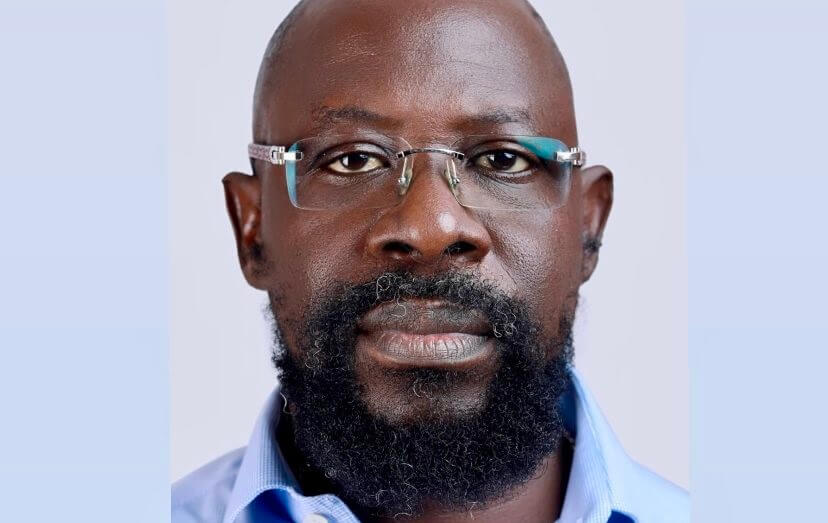In this explosive interview, fierce critic and one of the spokespersons of the Obi/Datti Campaign Organisation, Dele Farotimi, says he quit law practice because he can’t bow to judges who don’t deserve the title of ‘Your Honour.’ PoliticsNow monitored the interview on Channels Television’s Politics Today.
Our Guest today is a lawyer…
(Cut in) I am not a lawyer again. I am retired.
But if you have been called to the Bar, you have been called to the Bar
Yes but I can decide to say that I have called a day on the practice of law itself. I have called it a day.
Why so?
Multiple reasons. But the key one being the fact that I have always desired living the profession after a point. But the fact that it has become increasingly possible to practice law in a lawless society was very easy to say bye-bye.
Let me be clear. It wasn’t like Nigeria became like this overnight. It has been like this since I was born. I had already made it clear to myself that once I got to a point in my life, I was going to say goodbye to earning a living by saying my lord and your worship to people I know are not fitting and deserving to be called those names. I know that I live in a country that is ruled by impunity and not law. So whilst I could play that game of practicing law, I understood clearly that by 50, the life is essentially over. So, I told myself since I was in the university that once I turn 50, I was living. So, it’s not just the fact that the legal system at best is a sham. That’s not just the reason. I had a personal desire to live when I turn 50, and it helped to say bye bye.
So in some point, you lost hope in the judiciary system?
I never had any hope in the judiciary system.
Why then do you bow down before the temple of justice?
It is one thing to read law to earn a living, to read law so that you know what the law says, or to read law in the delusion that you might get justice out of a system from a system that is not designed to deliver justice. So I’m not suggesting that there aren’t instances where you can extract justice out of the system. We’ve had episodic periods where justice will be delivered either because the judge has a conscience or you are fortunate to have all the evidence stacked in your favour or impossible for anyone to twist the outcome. But the reality is that the judiciary is hardly the last hope of the common man.
How bad are things
Our judiciary is not different from our customs, from our police or any other part of the Nigerian state. Why should we be surprised that the judiciary reflects us? It is us. We are the ones who are there. So, it is either we are good enough as a people to do justice to ourselves, or we are not. So, we should at least tell ourselves this home truth. The judiciary is not staffed by people from Ghana, Togo, Lome or anywhere else. They are Nigerians like me and you, bowing to the same pressure that I and you know
Why do you think things got so bad?
Our situation is this. In the absence of the rule of law, we have become a people governed by the administration of impunity. The policeman who has to enforce the law, in the absence of law to enforce, has to enforce some form of order, and the order he enforces is based on the will of the political masters he serves. So, you find in essence that the policeman is administering impunity. So, when he is done administering impunity, someone has to pretend to uphold the law. And that is the judiciary.
But the judiciary in question, is peopled by the likes of me, and you and all the other Nigerians. The appointive process has already assured problem because it comes from the same filter that filter the society from which you and I are drawn. It’s no wonder you sometime find that the list of appointed justice is a reflective of who is who in the judiciary. So, the judiciary has more or less become a hereditary on who you know, who your parents are or your political affiliation. It has become a way to settle persons who are children of the system. So, you then begin to get the Bulkasualisation of our judiciary.
Is that an English word?
Well we have to introduce it to our words if we have a situation where a senator in his valedictory speech, is telling us how decisions are made in our judiciary. And the man’s name happens to be Bulkachuwa.
The woman, Justice Bulkachuwa has denied that allegation.
She can deny anything she cares to deny. I have seen obscene, bizarre decisions of court that have no bearing on common sense, and it is normalized as coming from hallowed chambers. And I’m supposed to find some level of explanations so that I might rationalize the insanity in my space. So, a man comes voluntarily and speaks. What he said, we don’t need to come and reinterpret it. It’s not about 25 per cent of this. He spoke unambiguously. The man was clear










More Stories
VIDEO: Hundreds of Rivers women walk out at Remi Tinubu’s event, demand reinstatement of Fubara
Court sentences Lagos BRT driver to death by hanging over murder of Bamise
Fubara reportedly prostrates, begs for forgiveness during peace meeting with Wike